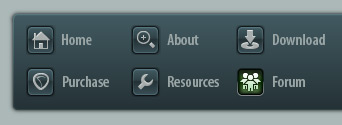 |
|

|
 06-10-2011, 07:40 PM
06-10-2011, 07:40 PM
|
#1
|
|
Human being with feelings
Join Date: Feb 2010
Location: The Dirty Dick Alabama
Posts: 82
|
 ReaComp settings for metal guitar?
ReaComp settings for metal guitar?
compression is something i never really understood. I have compression on my Boss Gt-10 but it only has 2 variables to mess with (sustain and attack). I'm just trying to get an idea for the controls or any suggested presets. i have some low-end distorted guitar "womp" that needs to be tamed and leveled. what is the "theory" behind using ReaComp? I also have some distorted 808's and other electronic drum sounds that need some squashing.(up to 16-tracks)...not including guitar, bass, keys, and vocals... suggestions? is there a thread or a vid that better explains how to use it for different applications? for idiots? should i be using a limiter?
Honestly, I've been recording guitar tracks for the least 3 months and nothing i do has been acceptable. recording alongside perfect, flawless electronic backing tracks isn't helping either. my sound from my amp is awesome and i dont want to mess with it. i have used 1-2 sm57's in every spot imaginable...(including the fredman technique in every position described). is it time for a new mic? what the next step up from an sm57?
|

|

|
 06-11-2011, 01:53 AM
06-11-2011, 01:53 AM
|
#2
|
|
Human being with feelings
Join Date: Nov 2006
Location: Belgium
Posts: 1,462
|

Quote:
Originally Posted by pedro_ov_msd

compression is something i never really understood. I have compression on my Boss Gt-10 but it only has 2 variables to mess with (sustain and attack). I'm just trying to get an idea for the controls or any suggested presets. i have some low-end distorted guitar "womp" that needs to be tamed and leveled. what is the "theory" behind using ReaComp? I also have some distorted 808's and other electronic drum sounds that need some squashing.(up to 16-tracks)...not including guitar, bass, keys, and vocals... suggestions? is there a thread or a vid that better explains how to use it for different applications? for idiots? should i be using a limiter?
Honestly, I've been recording guitar tracks for the least 3 months and nothing i do has been acceptable. recording alongside perfect, flawless electronic backing tracks isn't helping either. my sound from my amp is awesome and i dont want to mess with it. i have used 1-2 sm57's in every spot imaginable...(including the fredman technique in every position described). is it time for a new mic? what the next step up from an sm57?
|
In my opinion metal guitar doesnt need any compression at all, as the sound is already pretty much saturated/distorted i.e removed from all of its dynamics. Compression = removing dynamics by attenuating a signal above a certain threshold. In order to make it louder again, you need to raise the entire signal, which adds noise.
I think you want to actually start at the amp. Use less distortion, use less Bass. use EQ. First try a high pass filter. Also you can try some real surgical cuts to try to get rid of some resonating frequencies. But compression is probably the last thing you need.
If you do wanna use a compressor, here's a method: use one dial at a time. Set your threshold really low such that everything gets compressed. Set your ratio to max. Set your release to a high value such that it never stops compressing. Then try to focus on the beginning of every note or chug or hit (admittely compressing drums are easier) . Turn the attack knob until you like what you are hearing focussing only on the initial attack of the sound. Then go to the release knob. turn it until you hear the compressor actually stop compressing at the end of every note/hit. Note how it creates a groove with the music. then go to the ratio and turn it to emphasise the volume curve you just created, but make sure the groove is still there. Then turn to the threshold and increase it such that on certain occasions it isnt compressing at all.
Yves
|

|

|
 06-11-2011, 06:04 AM
06-11-2011, 06:04 AM
|
#3
|
|
Mortal
Join Date: Jan 2006
Location: Wickenburg, Arizona
Posts: 14,051
|
Some metal styles will use compressors to deal with lows and / or low mids. Usually what people think of as "guitar compression" is really just the guitars being modulated like hell by the compressor on the master buss or mastering lab.
If the compressor is set to trigger in a way where the kick does a fair amount of controlling it, you'll get that swelling up sound on slow parts after kick drums that usually has people praising "the giant guitar sound"
I would say not to worry about compressing your guitar (or anything else) unless you hear a specific problem that needs to be dealt with.
People will scream that compressors can also be used to create certain types of sounds, but I would save that till WAY after you learn not just how to use a compressor nicely, but WHY you might want to set the controls a certain way.
At this point if you are getting a sound you like out of your guitar, you are already way ahead of the game.
|

|

|
 06-11-2011, 10:43 AM
06-11-2011, 10:43 AM
|
#4
|
|
Human being with feelings
Join Date: Feb 2010
Location: The Dirty Dick Alabama
Posts: 82
|

i do love the way my guitar tone sounds. it cuts through just fine during band practice. but for recording, i cant get it to cut through the mix. even if i have 4 guitar tracks playing the same part, they are still having to fight off 10-16 other sounds. im still gonna give yhertogh's approach a try. i think you presented it in the language i was looking for. i mean, i am just making demos for friends and the band so they can work on their parts on their own more often, or to hear if there is anything about the song we want to change. it doesn't have to sound bad-ass, just cool enough to listen to.
is it time for a new mic? i have been using sm57s for about 6 yrs now and it is my experience that to use them, you spend an hour finding that tiny sweet spot, record half of your album, a fly lands on the boom of the mic stand, now everything sounds funny and you spend the next 3 hours trying to find that sweet spot again. is the e609 more forgiving for being in the same price range as the sm57?
|

|

|
 06-11-2011, 02:24 PM
06-11-2011, 02:24 PM
|
#5
|
|
Human being with feelings
Join Date: May 2010
Posts: 74
|
I've always used sm 57s to record rock/crunchy guitars...best mic to do so IMHO. Have you tried a different 57 to see if it is your mic causing the problems? 57s can get damaged easily.
|

|

|
 06-11-2011, 02:43 PM
06-11-2011, 02:43 PM
|
#6
|
|
Human being with feelings
Join Date: Mar 2011
Location: Brazil
Posts: 447
|
Quote:
Originally Posted by pedro_ov_msd

i do love the way my guitar tone sounds. it cuts through just fine during band practice. but for recording, i cant get it to cut through the mix.
|
Personally, I use two completely different patches for recording and playing live (POD X3).
I never managed to have a single patch to sound fine on both situations (I'm a former GT-8 owner).
|

|

|
 06-11-2011, 03:38 PM
06-11-2011, 03:38 PM
|
#7
|
|
Mortal
Join Date: Jan 2006
Location: Wickenburg, Arizona
Posts: 14,051
|
Quote:
Originally Posted by pedro_ov_msd

i have been using sm57s for about 6 yrs now and it is my experience that to use them, you spend an hour finding that tiny sweet spot, record half of your album, a fly lands on the boom of the mic stand, now everything sounds funny and you spend the next 3 hours trying to find that sweet spot again.
|
That' ANY mic. Changing mics wont change the laws of time and space
|

|

|
 06-11-2011, 09:00 PM
06-11-2011, 09:00 PM
|
#8
|
|
Human being with feelings
Join Date: Nov 2010
Location: Central PA
Posts: 598
|

You don't need a new mic. I agree with what was said before, it's probably more an EQ thing. One thing I find guitarist-producers have trouble with is understanding that their guitar will sit differently in a mix than it does on a live stage. It will sound different in the mix than it does solo'd. As much as you love your sound, you're going to have to alter it to get it to play well with all the other sounds.
One of the first things that should (for most intents and purposes) always be done is a high pass filter - Clean out that bottom end mud. Even if you do a bunch of drop-D or 7 string mean meaty chugging metal, you probably still want to shave off most anything below roughly 100hz. Then you have to critically listen to your guitar (and all your sounds) and find it's sweetspot in the frequency spectrum - then cut a few dB there from the other instruments. For example, for me and my bassy voice, I'll make a 3-6db cut in the guitar around 800hz while letting it rise gently back to the 0 line around 2kHz and then maybe a shelving boost around 12kHz for some air. Meanwhile, I'll make sure my vocals are cut around 600hz (for bass to fit in, and with a highpass too of course!) a little boost around 800hz (opposite of what I did in the guitar) and then another small cut around 1or2kHz to let the guit's voice come through. This is just an off the top of my head example and the actual numbers will vary depending on the project, but you see what I mean. Every instrument has to have a place in the frequency spectrum and to not be fighting for that realestate with another.
As far as a BIG guitar sound goes, you may be shooting yourself in the foot (so to speak) by layering 4 tracks of the same thing. It may seem counterintuitive, but amazingly, the less you have of something the more "upfront" it sounds. Layering can make for some cool lush sounds, but at the expense of power - though plenty of metal albums employ layers of zillions of guitars doing the same thing, I think those engineers spend about a year on each mix getting everything just right 
But to return to my original point and bring it all home - after you've messed with all your EQ's and got your guitar to work with the mix solo it and see how it sounds. To me, whenever I solo a great sounding guitar out of a dense mix it always sounds kind of thin and lackluster on its own. That's normal, don't sweat it - your listeners won't hear the guitar solo'd, the important thing is everything in the mix working together.
|

|

|
| Thread Tools |
|
|
| Display Modes |
 Hybrid Mode Hybrid Mode
|
 Posting Rules
Posting Rules
|
You may not post new threads
You may not post replies
You may not post attachments
You may not edit your posts
HTML code is Off
|
|
|
All times are GMT -7. The time now is 09:55 AM.
|